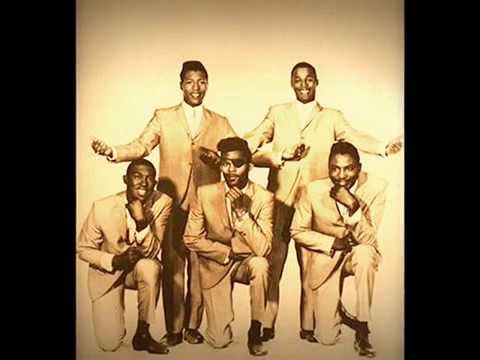You have to use a specific formula when you review a Styx album. Admittedly, critics haven’t always done so, nor have they needed to for a while. The last album of all new material,
Cyclorama, came out in 2003. Between then and now, the band has released one album of cover songs, a series of EPs where the band covered themselves, and several tours. That Styx was able to finally make an album of new material is to be applauded. Many artists of their vintage don’t see the value proposition of making anything new, particularly when the next tour comes around and all anyone asks for is “Come Sail Away.”
 Because of this extraordinary step, it is justified to give the band’s latest, The Mission, as fair a hearing as possible. Not that such should ever be doubted, but the band will forever have to deal with Kilroy Was Here as part of their legacy; an album that, even on the level of kitsch and novelty, withers under scrutiny. Thus, that specific formula has to be applied.
Because of this extraordinary step, it is justified to give the band’s latest, The Mission, as fair a hearing as possible. Not that such should ever be doubted, but the band will forever have to deal with Kilroy Was Here as part of their legacy; an album that, even on the level of kitsch and novelty, withers under scrutiny. Thus, that specific formula has to be applied.
You can only measure Styx albums against other Styx albums.
Styx never has and never will produce something on the level of “All Along The Watchtower.” You might measure “Come Sail Away” against “Stairway To Heaven” on the basis of audacity, but even so, the former comes off as extremely broad when benchmarked against the latter. You can’t even really measure Styx songs against “Don’t Stop Believin’,” or “High Enough,” even though Tommy Shaw was/is a member of both Styx and Damn Yankees.
But if you match Pieces Of Eight against Edge Of The Century, or Paradise Theatre against Brave New World, you can make it work. Why is this necessary? Because, in order to sound like a proper Styx song, you need to balance three opposing personalities. First you need bombast and theatricality, as embodied by former bandmate Dennis DeYoung, whose stamp on the group is so indelible that, even after his departure, he still is regarded as the “voice of Styx.” Then you have a sort of “meat ‘n potatoes” version of rock, as personified by Tommy Shaw. Finally, you have James Young. Even though he’s never verbalized it, to our knowledge, Young always comes across as a guy who would have loved to have been a classic “rock weirdo” in the mold of an Alice Cooper, KISS, or even Marc Bolan. He straddles the fence between the other two band personalities in this way, and because he has acted as this unifying force, has needed to tamp down that freak flag that always feels just slightly out of frame.
 So there you have it. It is hard for Styx albums to compete with other bands because there’s so much competition within its own ranks. You get either cohesion or breakdown when one of these forces shouts down another. But, you might interrupt: DeYoung is not in the band anymore. Isn’t this pattern broken? Not necessarily. Even though he’s been with the group for fourteen years, Lawrence Gowan is stuck with the unenviable position of not only being “the new guy” but of replacing an outsized musical presence such as is DeYoung’s. He has to bring drama without bring “the drama” or it just won’t sound like the band (a malady that took down Cyclorama at the knees).
So there you have it. It is hard for Styx albums to compete with other bands because there’s so much competition within its own ranks. You get either cohesion or breakdown when one of these forces shouts down another. But, you might interrupt: DeYoung is not in the band anymore. Isn’t this pattern broken? Not necessarily. Even though he’s been with the group for fourteen years, Lawrence Gowan is stuck with the unenviable position of not only being “the new guy” but of replacing an outsized musical presence such as is DeYoung’s. He has to bring drama without bring “the drama” or it just won’t sound like the band (a malady that took down Cyclorama at the knees).
That’s quite a preamble. Is The Mission worth the effort? Popdose’s Ted Asregadoo and Dw. Dunphy dare to compare.
Dw: As the opening suggests, you can’t measure Styx albums against, say, Journey albums, or Kansas albums, or U2 albums, or whatever. You have to see how they fit into the very specific thing they do and, by and large, The Mission is successful under those conditions. It sounds good, it sounds like the band you remember from the late 1970s, much more than what the band would become in the ‘80s.
 Lyrics are still a sore spot with Styx, no matter who is writing. There’s no room for subtlety with them. If they’re singing about a mission to Mars, that’s not a metaphor. They’re going on a mission to Mars. This is particularly true with the song “Gone, Gone, Gone” which opens up the record proper (after “Overture”) which uses a lot of gung-ho, psyche-up language.
Lyrics are still a sore spot with Styx, no matter who is writing. There’s no room for subtlety with them. If they’re singing about a mission to Mars, that’s not a metaphor. They’re going on a mission to Mars. This is particularly true with the song “Gone, Gone, Gone” which opens up the record proper (after “Overture”) which uses a lot of gung-ho, psyche-up language.
The song “Khedive” is mostly an instrumental, and the playing on it is pretty extraordinary. I was hoping that it would build into a massive crescendo of some sort, but it doesn’t quite pay off. The band sings “khedive!” at the end, which is the name of the ship on this mission to Mars. (Apparently, it means: “The title of the monarch of Egypt in the late 19th and early 20th centuries, nominally a viceroy of the Sultan of Turkey.”).
So up to this point, I’ve sounded fairly negative. What I want to put across is that while there are a lot of imperfections throughout The Mission, it is still very enjoyable. It feels, in terms of narrative, like Styx were taking a cue from Queen’s soundtrack to the Flash Gordon movie. Plus, there are two really good songs on here…good enough that they can fit seamlessly into the live repertoire, I think. “Locomotive” and “Radio Silence” really stand well on their own but are not — and this is important — singles. If people buy this record looking for a new “Come Sail Away,” “Renegade,” “The Best Of Times,” “Don’t Let It End,” or even “Show Me The Way,” they’re going to be disappointed.
 You need to get to this album with low expectations, and afterward, you’ll be positively surprised. If you actually are expecting The Grand Illusion, Pieces Of Eight, or Paradise Theatre, you could be let down. But it’s definitely not Kilroy or Brave New World, that’s for sure.
You need to get to this album with low expectations, and afterward, you’ll be positively surprised. If you actually are expecting The Grand Illusion, Pieces Of Eight, or Paradise Theatre, you could be let down. But it’s definitely not Kilroy or Brave New World, that’s for sure.
Ted: I think you’re absolutely correct in your view that this is not a singles-driven Styx album. The Mission certainly hearkens back to their pre-Cornerstone or Paradise Theatre era when the band was writing songs that weren’t laced with backward looking romanticism. This is certainly a forward looking concept album, but you can’t have a mission to Mars without humans taking their cultural conditioning with them. That certainly comes out in the lyrics. There’s kind Star Trek quality to the lyrics that make me think Gene Roddenberry would be happy with the whole “wagon train to the stars” vibe. The sense of adventure, swagger, wonderment, and moments of longing are the stuff of Captain Kirk and the crew — but Styx handles it without the campiness.
Personally, I love how “Overture” sets the tone with a classic Styx sound that’s both ethereal and melodic — and then kicked it into high gear with “Gone, Gone, Gone.” The latter song really rocks, has great Styx harmonies, and J.Y. Young’s playing is just flat out great. “Hundred Million Miles” is one of those mid-tempo numbers that’s a nice transition song to push deeper into the journey. It’s not proggy in feel (as the songs later in the album are), but it seems the band keeps with a standard song structure so the transitions from song to song aren’t as jarring.
As a musician Dw, I’m curious to know your thoughts on the music on the record. I’m just a music fan, but you actually compose music. From my view, I think the band is both playing at a level I haven’t heard in a long time, and the music itself is just solid. How ‘bout you?
 Dw: One of the best parts about the album is that they’re doing it as a rock band. The thing that sinks a concept album or a rock opera the quickest is when songwriters think they’re librettists. That’s when you wind up with singers, belting at the top of their lungs, “I’m so sad!” Then you’re really in trouble.
Dw: One of the best parts about the album is that they’re doing it as a rock band. The thing that sinks a concept album or a rock opera the quickest is when songwriters think they’re librettists. That’s when you wind up with singers, belting at the top of their lungs, “I’m so sad!” Then you’re really in trouble.
That said, I think the band left some money on the table.
I’m sure they’re gun-shy and don’t want to cross into Kilroy territory, but I felt like this story needed a couple more songs. Usually I’m asking for fewer, so it comes as a surprise to me. But I would have loved to hear a song that voices regret about leaving earth, something more personal and individual-driven. Like a voice of resentment that previous generations screwed things up so badly that such a mission was a necessity in the first place. That would have been a prime spot for J.Y. to rant and rave.
Or, perhaps, the child or other family member that harbors resentment that a parent is taking off and leaving them behind. Surely some people are going to be left behind while this “wagon train to the stars” does its duty.
Speaking of which, I’m reminded that Styx once did a song called “Why Me?” It would have been a fun turn to have a song called “Why You?” which voiced the frustration of those who were rejected from taking the mission. But maybe these could have flirted with Kilroy’s cheesiness, so perhaps it’s for the best that no such things are here.
Ted: If there’s glaring flaw in the record, it’s the last song “Mission to Mars.” For all the build up in the story, the conclusion fell flat. The song itself sounds a bit like a tack-on and lyrically it doesn’t do much to conclude anything. So, while I really enjoyed the journey Styx took me on, the end of the ride seemed like a bit of a letdown. From “Time May Bend” (which has many proggy elements),“Ten Thousand Ways,” “The Red Storm,” the rolling keyboards of “Khedive” and even the soaring quality of “The Outpost” it all seems to work as part of the narrative. But once “Mission to Mars” comes on, I was kind of scratching my head and wondering, “That’s it?”
Dw.: Yes, “Mission To Mars” is a toothless coda. It feels hollow; a big, “Yay, we made it!” but for what value? As the opening section to, perhaps, a reprise of “The Greater Good,” now with more of a positive sentiment behind it, perhaps that would have made a more satisfying end. I think that would have upped the progressive feel to the whole thing a notch.
But I don’t want to linger too much on where the record falls down. It could have been much stronger, in my opinion, but it also could have been magnitudes weaker. When the album works, it works very well, and I think Styx is to be commended for all of those moments. For as fractious a group as they’ve been over time, and for the long period where they did not have new material, no one could predict they’d come up with something that hits more than it misses than this album.
Ted: During their heyday, Styx seemed more like a corporation than a band. From their VH1 “Behind the Music” episode, Tommy Shaw wasn’t masking how disillusioned he was when the band moved away from their progressive and hard rock roots to a hits driven band. And yeah, it’s easy to rag on Dennis DeYoung, but he did write most of their most memorable songs. But Shaw, J.Y., and even the Panozzo brothers were much more committed to Album Oriented Rock than Contemporary Hit Radio, so for this current incarnation of the band to go back to the 1975-1978 sound as a conscious decision was a smart move. At this stage of their career, Styx doesn’t need another ballad with the word “paradise” in it. They started as a rock band whose sound intersected with progressive rock — but was much more melodic — and that’s where their roots are.
On The Mission they really do get back to their roots in a way that’s not campy, ironic, or ham-handed. Given that the group’s last record of original songs was in 2003, it was a gamble to attempt something like this. They took their time (something like two years) and the songs are, for the most part, squarely in the best of the hard rock tradition. Credit goes to both Tommy Shaw and Will Evankovich who had the vision (and the songs) to make The Mission a satisfying return for Styx as songwriters, players, and a band. And on the production side, I’m very grateful they also created a sonic treat for music fans. In other words, the record sounds great!

 Because of this extraordinary step, it is justified to give the band’s latest, The Mission, as fair a hearing as possible. Not that such should ever be doubted, but the band will forever have to deal with Kilroy Was Here as part of their legacy; an album that, even on the level of kitsch and novelty, withers under scrutiny. Thus, that specific formula has to be applied.
Because of this extraordinary step, it is justified to give the band’s latest, The Mission, as fair a hearing as possible. Not that such should ever be doubted, but the band will forever have to deal with Kilroy Was Here as part of their legacy; an album that, even on the level of kitsch and novelty, withers under scrutiny. Thus, that specific formula has to be applied. So there you have it. It is hard for Styx albums to compete with other bands because there’s so much competition within its own ranks. You get either cohesion or breakdown when one of these forces shouts down another. But, you might interrupt: DeYoung is not in the band anymore. Isn’t this pattern broken? Not necessarily. Even though he’s been with the group for fourteen years, Lawrence Gowan is stuck with the unenviable position of not only being “the new guy” but of replacing an outsized musical presence such as is DeYoung’s. He has to bring drama without bring “the drama” or it just won’t sound like the band (a malady that took down Cyclorama at the knees).
So there you have it. It is hard for Styx albums to compete with other bands because there’s so much competition within its own ranks. You get either cohesion or breakdown when one of these forces shouts down another. But, you might interrupt: DeYoung is not in the band anymore. Isn’t this pattern broken? Not necessarily. Even though he’s been with the group for fourteen years, Lawrence Gowan is stuck with the unenviable position of not only being “the new guy” but of replacing an outsized musical presence such as is DeYoung’s. He has to bring drama without bring “the drama” or it just won’t sound like the band (a malady that took down Cyclorama at the knees). Lyrics are still a sore spot with Styx, no matter who is writing. There’s no room for subtlety with them. If they’re singing about a mission to Mars, that’s not a metaphor. They’re going on a mission to Mars. This is particularly true with the song “Gone, Gone, Gone” which opens up the record proper (after “Overture”) which uses a lot of gung-ho, psyche-up language.
Lyrics are still a sore spot with Styx, no matter who is writing. There’s no room for subtlety with them. If they’re singing about a mission to Mars, that’s not a metaphor. They’re going on a mission to Mars. This is particularly true with the song “Gone, Gone, Gone” which opens up the record proper (after “Overture”) which uses a lot of gung-ho, psyche-up language. You need to get to this album with low expectations, and afterward, you’ll be positively surprised. If you actually are expecting The Grand Illusion, Pieces Of Eight, or Paradise Theatre, you could be let down. But it’s definitely not Kilroy or Brave New World, that’s for sure.
You need to get to this album with low expectations, and afterward, you’ll be positively surprised. If you actually are expecting The Grand Illusion, Pieces Of Eight, or Paradise Theatre, you could be let down. But it’s definitely not Kilroy or Brave New World, that’s for sure. Dw: One of the best parts about the album is that they’re doing it as a rock band. The thing that sinks a concept album or a rock opera the quickest is when songwriters think they’re librettists. That’s when you wind up with singers, belting at the top of their lungs, “I’m so sad!” Then you’re really in trouble.
Dw: One of the best parts about the album is that they’re doing it as a rock band. The thing that sinks a concept album or a rock opera the quickest is when songwriters think they’re librettists. That’s when you wind up with singers, belting at the top of their lungs, “I’m so sad!” Then you’re really in trouble.
 His new album, Dance By the Riverside, combines the best of old-school sounds with modern references, like social media and ghosting. Unlike someone who’s trying to be ultra hip and current, however, the cohesiveness of his writing makes it all work. And, of course, there’s the message and intent behind his work — and it’s an important, positive one. “I hope this album inspires and uplifts all who hear it,” he says.
His new album, Dance By the Riverside, combines the best of old-school sounds with modern references, like social media and ghosting. Unlike someone who’s trying to be ultra hip and current, however, the cohesiveness of his writing makes it all work. And, of course, there’s the message and intent behind his work — and it’s an important, positive one. “I hope this album inspires and uplifts all who hear it,” he says.



 But this isn’t that Anathema, and the opening track of The Optimist, “32.63N 117.14W” returns to that soundscape. The man swims back to shore, gets back in the car and, tellingly, straps his seatbelt on. He gasps for air. Clearly, he’s not ready to shuck off life just yet. Thus, the narrative of the record — that even when faced with living with terrible consequences, living is the key — has already defined itself in a much different way than its predecessor, and the music hasn’t even started yet.
But this isn’t that Anathema, and the opening track of The Optimist, “32.63N 117.14W” returns to that soundscape. The man swims back to shore, gets back in the car and, tellingly, straps his seatbelt on. He gasps for air. Clearly, he’s not ready to shuck off life just yet. Thus, the narrative of the record — that even when faced with living with terrible consequences, living is the key — has already defined itself in a much different way than its predecessor, and the music hasn’t even started yet.